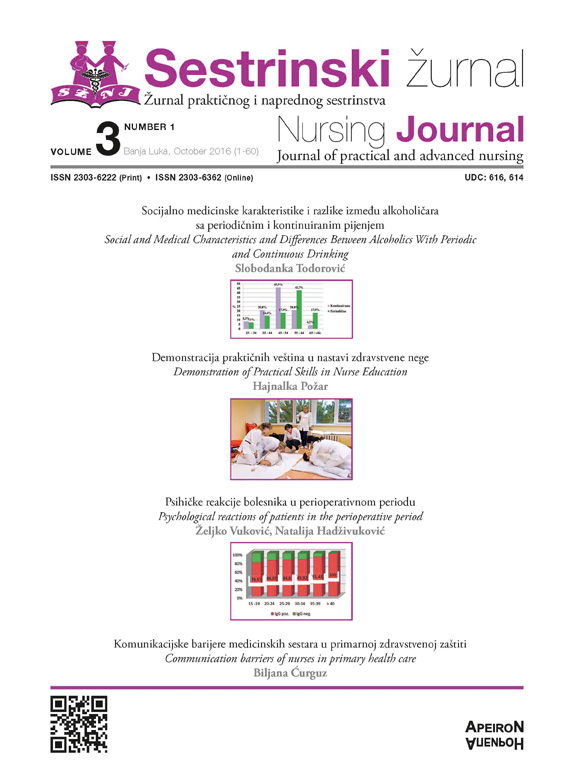Komunikacijske barijere medicinskih sestara u primarnoj zdravstvenoj zaštiti / Communication barriers of nurses in primary health care
DOI:
https://doi.org/10.7251/SEZ0116037CAbstract
In the process of communication in health institutions one of the main barriers to communication of medical staff with patients is lack of time. Due to the small number of employees and increased workload, members of the medical staff in health institutions are usually burdened with many responsibilities and must take a hard schedule your work day or during the working day. This often make at the expense of communication with patients, which becomes superficial and insufficient.
The use of technical and colloquial terms could represent a significant barrier in communication with the patient. Often medical professionals forget that the patients come from different backgrounds and most of them do not have the level of education that allows them to understand the professional medical terminology. All these medical terms that experts handle daily for patients are confusing and often terrifying, which significantly complicates communication. Therefore, in an interview of nurses to patients, it is necessary to adapt their speech skills and the ability to understand patients.
Emotional attitude and empathy are one of the most important parts of successful communication in general, and especially the medical staff and patients. We are witnessing, unfortunately, that severe socio-economic relations model the behavior not only in medical institutions but to the whole community. Patients often referred arrogance, recklessness, rudeness and lack of empathy medical staff as a reason for a complete breakdown of communication and expression of general discontent to healthcare professionals. Empathic communication skills can and must learn if the medical staff has a value system that places emphasis on establishing a therapeutic relationship with the patient. All health care professionals need to develop a certain level of taking care of the patient and learn how to better listen, provide support and comfort.

